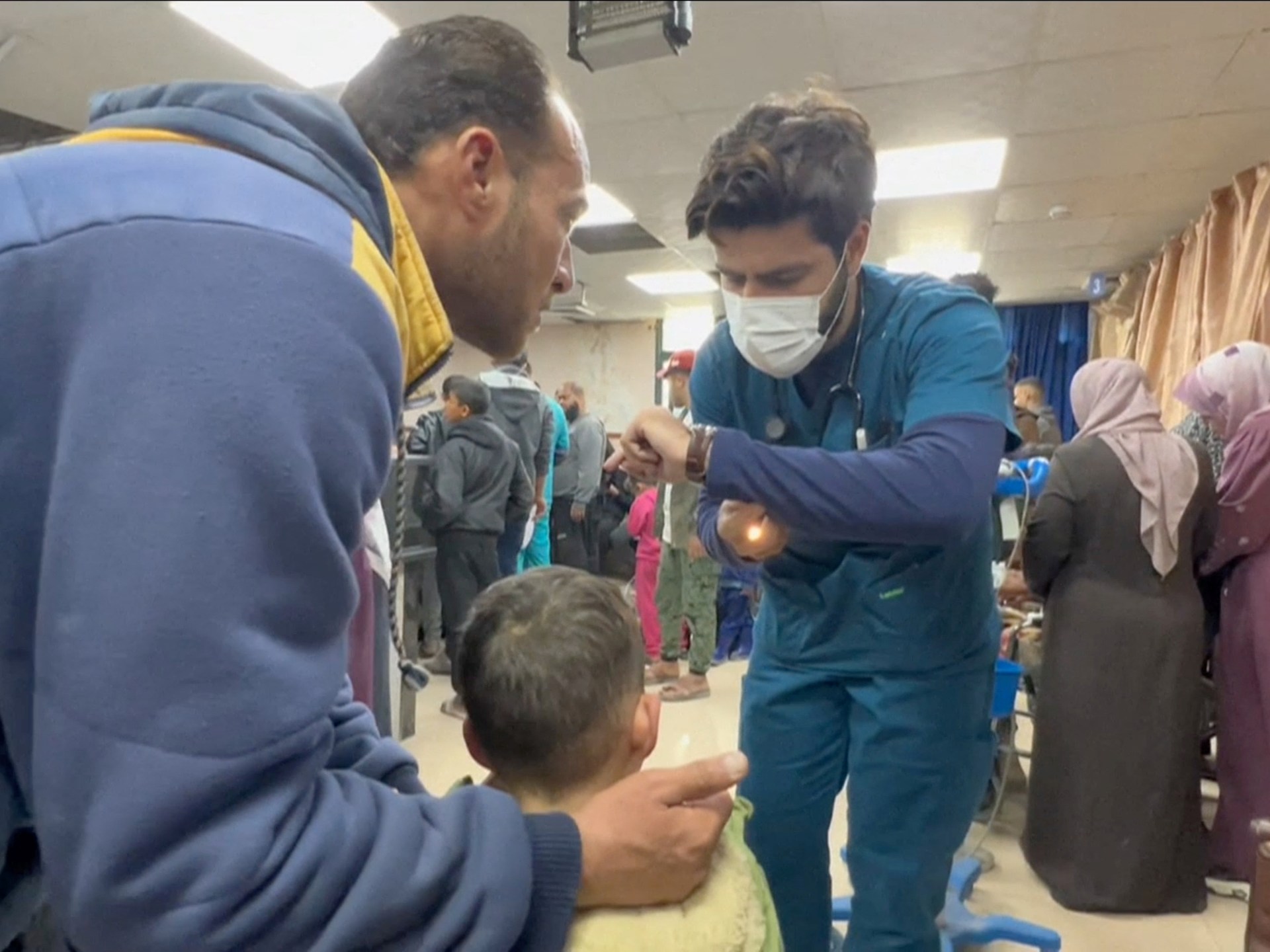Groups advocating for Palestinian prisoners say Adnan al-Barash, head of orthopaedics, died as a ‘result of torture’.
A prominent Palestinian doctor from Gaza’s al-Shifa Hospital has died in an Israeli jail after more than four months of detention, according to the enclave’s health ministry and groups advocating for Palestinian prisoners.
Adnan al-Barash, the head of orthopaedics at Gaza’s largest medical facility, was detained by Israeli forces while temporarily treating patients at al-Awda Hospital in the north of the territory, the Palestinian Prisoners Affairs Committee and the Palestinian Prisoner’s Society said in a joint statement on Thursday.
The two groups blamed Israel for “killing” another medical worker and described it as an “assassination”.
With his death, Gaza’s Ministry of Health said the total number of medical personnel who have been killed since Israel’s war on Gaza broke out in October has reached 496.
“The killing of Dr al-Barash would not be the last crime in light of the complete secrecy of the condition of prisoners in prisons, especially those arrested from the Gaza Strip,” it said.
Francesca Albanese, the United Nations special rapporteur on human rights in the occupied Palestinian territories, said she was “extremely alarmed” after learning about al-Barash’s death.
“No Palestinian is safe under Israel’s occupation today. How many more lives will have to be taken before UN Member States, especially those demonstrating genuine concern for human rights globally, act to PROTECT the Palestinians?”
I am extremely alarmed by information that Dr. Adnan Albursh, a well-known surgeon at #alshifa_hospital, has died while detained by Israeli forces in the Ofer military prison. While I acquire more information, I URGE the diplomatic community to intervene with CONCRETE MEASURES to…
— Francesca Albanese, UN Special Rapporteur oPt (@FranceskAlbs) May 2, 2024
Al-Barash died on April 19, the prisoners’ groups said, citing Palestinian authorities. They alleged that his death was “part of a systematic targeting of doctors and the health system in Gaza”, adding that he died “as a result of torture”.
The Israeli prison service issued a statement on April 19 saying that a prisoner detained for national security reasons had died in Ofer prison. It gave no details about the cause of death.
A prison service spokesperson confirmed that the statement referred to al-Barash and said the incident was being investigated, the Reuters news agency reported.
The Israeli army responded to the AFP news agency when asked about the reported death in custody: “We are currently not aware of such [an] incident.”
Al-Barash was “tortured to death by the Israeli army in their secret detention sites. He was a great surgeon, full of life,” Dr Ghassan Abu Sittah, a British Palestinian surgeon, posted on X.
Abu Sittah, who volunteered in Gaza’s medical facilities during the first weeks of Israel’s war and worked at the al-Shifa and al-Alhi Baptist hospitals, wrote that al-Barash was “taken hostage from al-Awda Hospital”, adding that “he was beaten to death” by Israeli prison guards.
The murder of Dr Adnan Al-Bursh in Israeli prisons was a red-line in the same way the Al-Ahli Hospital massacre was. Once safely crossed the whole project can be rolled out. The lives of over 100 health workers in prisons are in danger.
— Ghassan Abu Sitta (@GhassanAbuSitt1) May 3, 2024
Doctors, hospitals targeted
Al-Barash, 50, was arrested with a group of other doctors in December at the al-Awda Hospital near the Jabalia refugee camp in northern Gaza.
The prisoners’ rights groups said his body was still being held by the Israeli authorities.
The fate of the other doctors remains unknown.
While attacks on medical facilities and health workers are banned under international humanitarian law, according to the Geneva Conventions, the Israeli military has repeatedly targeted them.
The health ministry said about 1,500 medical workers have also been wounded during the war, while 309 remain imprisoned in Israeli jails.
It called on the international community and health and human rights organisations to intervene and protect prisoners held by Israel.
Israel routinely accuses Hamas of using hospitals for military purposes and says its operations have been justified by the presence of fighters, but it has not provided any evidence to back its claims. Hamas and medical staff deny such allegations.
Check out our Latest News and Follow us at Facebook
Original Source

